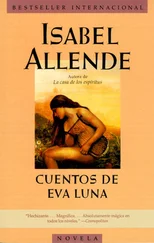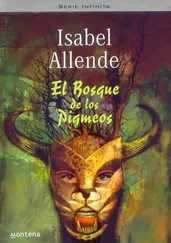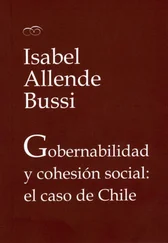Isabel Allende - Zorro
Здесь есть возможность читать онлайн «Isabel Allende - Zorro» весь текст электронной книги совершенно бесплатно (целиком полную версию без сокращений). В некоторых случаях можно слушать аудио, скачать через торрент в формате fb2 и присутствует краткое содержание. Год выпуска: 2005, ISBN: 2005, Издательство: Harper Perennial, Жанр: Исторические приключения, на английском языке. Описание произведения, (предисловие) а так же отзывы посетителей доступны на портале библиотеки ЛибКат.
- Название:Zorro
- Автор:
- Издательство:Harper Perennial
- Жанр:
- Год:2005
- ISBN:9780060779009
- Рейтинг книги:3 / 5. Голосов: 1
-
Избранное:Добавить в избранное
- Отзывы:
-
Ваша оценка:
- 60
- 1
- 2
- 3
- 4
- 5
Zorro: краткое содержание, описание и аннотация
Предлагаем к чтению аннотацию, описание, краткое содержание или предисловие (зависит от того, что написал сам автор книги «Zorro»). Если вы не нашли необходимую информацию о книге — напишите в комментариях, мы постараемся отыскать её.
Zorro — читать онлайн бесплатно полную книгу (весь текст) целиком
Ниже представлен текст книги, разбитый по страницам. Система сохранения места последней прочитанной страницы, позволяет с удобством читать онлайн бесплатно книгу «Zorro», без необходимости каждый раз заново искать на чём Вы остановились. Поставьте закладку, и сможете в любой момент перейти на страницу, на которой закончили чтение.
Интервал:
Закладка:
“Blessed Virgin Mary, he’s alive!” exclaimed de la Vega, stepping back.
Even more than the fact that his enemy was still breathing, he was surprised by the beauty of his elongated, caramel-colored, thick-lashed eyes, the limpid eyes of a deer set in a face covered with blood and war paint. De la Vega dropped his sword, knelt, and put his hand beneath the chief’s neck, carefully pulling him up to a sitting position. The deer eyes closed and a long moan escaped the parted lips. The captain looked around and found that they were alone in this part of the church, very near the altar. On an impulse, he lifted the wounded Indian, meaning to throw him over his shoulder, but the chief was much lighter than de la Vega had expected. He carried him in his arms as he would a child, threading his way among sacks of sand and rock, weapons, and the bodies of the dead, which still had not been removed by the missionaries, and stepped outside the church into the light of that autumn day, which he would remember for the rest of his life.
“He’s alive, Padre,” he announced, laying the wounded chief on the ground.
“Too bad, Captain, because we will still have to execute him,” replied Padre Mendoza, who by now had a shirt rolled around his head like a turban to stanch the blood flowing from his lopped-off ear.
Alejandro de la Vega could never explain why instead of seizing the moment to decapitate his enemy, he hurried off to look for water and rags to sponge his injuries. Helped by a young female neophyte, he parted the heavy black hair and rinsed the long wound, which began to bleed again at contact with the water. He palpated the skull, verifying that there was an angry wound but that the bone was intact.
He had seen worse in war. He took up a curved needle used for making mattresses and a length of horsehair that Padre Mendoza had put to soak in brandy, and stitched up the scalp. Then he washed off the chief’s face, noting the light skin and delicate features. With his dagger he slit the bloody wolf-skin tunic to see whether there were other wounds, and as he did so he grunted with shock.
“He’s a woman!” he shouted, horrified.
Padre Mendoza and the others came running up, only to stand and stare, mute with amazement, at the virginal breasts of the warrior.
“It’s going to be much more difficult to kill him now,” Padre Mendoza sighed finally.
Her name was Toypurnia, and she was barely twenty years old. She had been able to convince the warriors of several tribes to follow her because she was preceded by a legend. Her mother was White Owl, a shaman and healer from the Gabrieleno tribe, and her father was a sailor, a deserter from a Spanish ship. He had lived for years in hiding among the Indians, until he was carried off by a bout with pneumonia; his daughter was an adolescent at the time. Toypurnia learned the basics of the Spanish language from her father, and from her mother, the use of medicinal plants and the traditions of her people. Her extraordinary destiny was manifest only a few months after birth, on an afternoon when her mother left her sleeping beneath a tree while she bathed in the river. A wolf had approached the bundle wrapped in skins, picked it up in its jaws, and dragged it off into the woods. A desperate White Owl followed the animal’s tracks for several days, but found no trace of the baby girl. During that summer the mother’s hair turned white, and the tribe continued to search, until the last hope of finding the child had evaporated. At that point a ceremony was performed to guide her to the vast plains of the Great Spirit. White Owl refused to participate in the rites and never stopped scanning the horizon; she felt in her bones that her daughter was still alive. One early morning at the beginning of winter a filthy little creature emerged from the mist; she was naked and covered with dirt, and she was crawling with her nose to the ground. It was the lost child, growling like a dog and smelling like a wild animal. They named her Toypurnia, which in the language of her tribe means Daughter-of-Wolf, and they raised her as if she were a boy, with a spear and a bow and arrow, because she had come out of the forest with a fearless heart.
Alejandro de la Vega learned these things in the days following the battle, straight from the mouths of the Indian prisoners who were locked in the lodge, moaning over their wounds and humiliation. Padre Mendoza had decided to free them as they mended, since he could not hold them captive indefinitely, and without their chief they seemed to have returned to their former docile and indifferent state.
He did not want to whip them, as he was certain they deserved, because punishing them would merely provoke more resentment, and neither did he mean to convert them to his faith, because it seemed to him that none of them had the makings of a Christian; they would be rotten apples spoiling the purity of his flock. It did not escape the padre’s attention that young Toypurnia exercised a strong fascination over Captain de la Vega, who looked for any excuse to keep going down to the underground wine cellar where they held the captive. The missionary had two good reasons for choosing the cellar for her prison: first, he could keep it locked, and second, the darkness would give Toypurnia opportunity to meditate on her actions. Since the Indians assured him that their chief could turn into a wolf and escape from any confinement, he took the additional precaution of tying her with leather thongs to the rough planks that served as her cot. The young woman hovered for several days between unconsciousness and nightmares, bathed in feverish sweat, and fed spoonfuls of milk, wine, and honey by Captain de la Vega’s own hand. From time to time she waked in total darkness and feared that she had been blinded, but other times she opened her eyes in the trembling light of a candle and saw the face of a stranger calling her name.
One week later, Toypurnia took her first secret steps on the arm of the handsome captain, who had decided to ignore Padre Mendoza orders to keep her bound and in the dark. By then, the two were able to communicate, since she remembered the fragmentary Spanish her father had taught her and he made the effort to learn words in her tongue.
When Padre Mendoza surprised them holding hands, he decided it was time to consider that his prisoner was well, and proceed with her sentencing. There was nothing further from his nature than to execute anyone in truth, he didn’t even know how to do it but he was responsible for the safety of the mission, and of his neophytes, and willingly or not this woman had caused several deaths. Sadly, he reminded the captain that in Spain the penalty for crimes of rebellion and banditry, like Toypurnia’s, was death by garrote, with the iron collar slowly choking off her life.
“We are not in Spain,” the captain replied, shuddering.
“I assume that you agree with me, Captain, that for as long as this woman is alive we are all in danger; she will rally the tribes again. There will be no garrote that is too cruel but with pain in my heart, I say that she will have to be hanged. There is no alternative.”
“This woman is a mestiza, Padre, half Spanish by blood. You have jurisdiction over the Indians in your charge, but not over her. Only the governor of Alta California can set her sentence,” the captain argued.
Padre Mendoza, for whom the idea of being the cause of another human’s death was too heavy a burden, immediately seized upon that logic. De la Vega offered personally to go to Monterey and ask Pedro Fages to decide Toypurnia’s fate, and the missionary accepted with a deep sigh of release.
Alejandro de la Vega reached Monterey in less time than was normally required for a rider to cover that distance; he was in a hurry to carry out his project, and he wanted to avoid the raiding Indians. He traveled alone, and at a gallop, stopping at missions along the road to change his horse and sleep a few hours. He had followed that trail before, and he knew it well, but he was always awed by the magnificence of nature: endless forests, a thousand varieties of animals and birds, streams and gentle slopes, the white sands of the beaches of the Pacific. He had no unpleasant encounters with Indians: they were wandering around in the hills without a chief and without a purpose, demoralized. If Padre Mendoza’s predictions were correct, their enthusiasm had been punctured completely, and it would take years for them to reorganize. The Presidio, built on an isolated promontory seven hundred leagues from Mexico City and half the world away from Madrid, was as gloomy as a dungeon, a monstrosity of stone and mortar that served as headquarters for a small contingent of soldiers, the only company of the governor and his family. That day a thick fog amplified the cries of the seagulls and the crashing of waves upon the rocks.
Читать дальшеИнтервал:
Закладка:
Похожие книги на «Zorro»
Представляем Вашему вниманию похожие книги на «Zorro» списком для выбора. Мы отобрали схожую по названию и смыслу литературу в надежде предоставить читателям больше вариантов отыскать новые, интересные, ещё непрочитанные произведения.
Обсуждение, отзывы о книге «Zorro» и просто собственные мнения читателей. Оставьте ваши комментарии, напишите, что Вы думаете о произведении, его смысле или главных героях. Укажите что конкретно понравилось, а что нет, и почему Вы так считаете.











